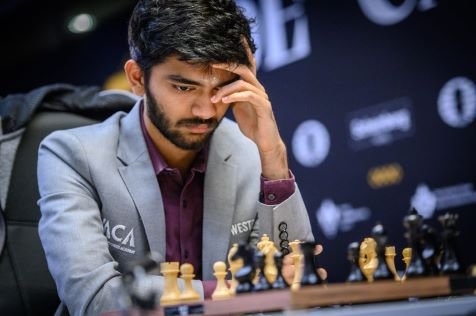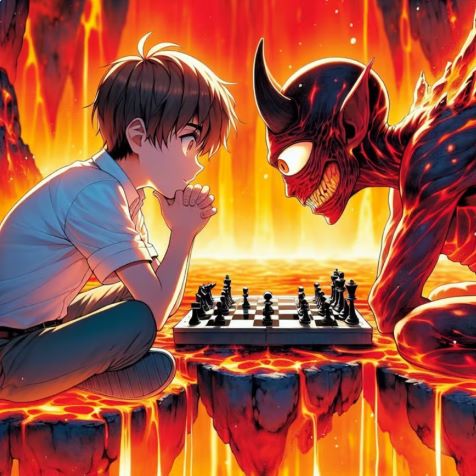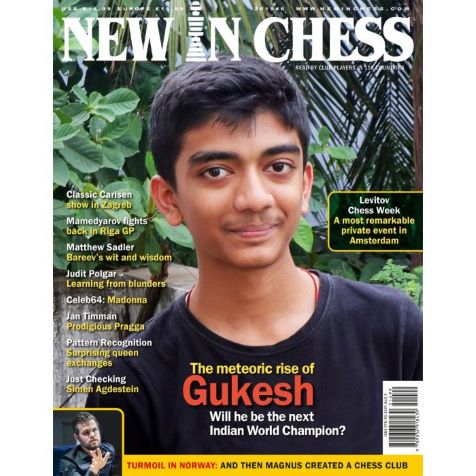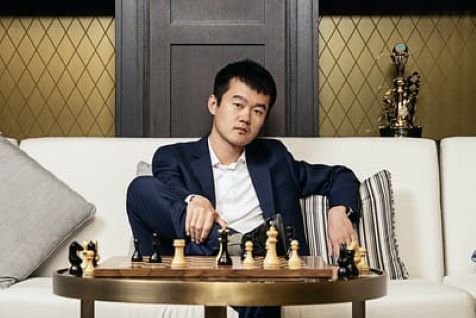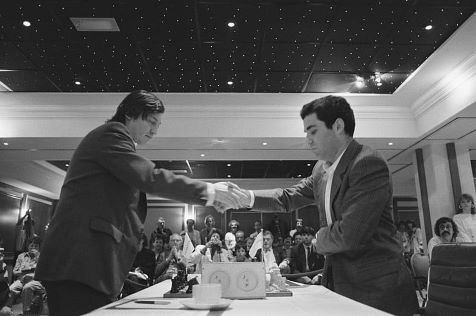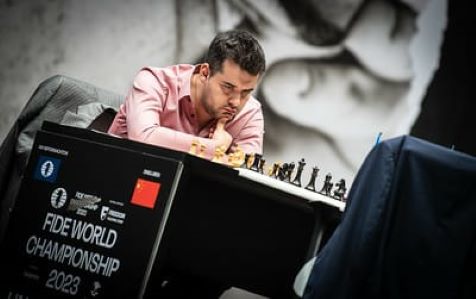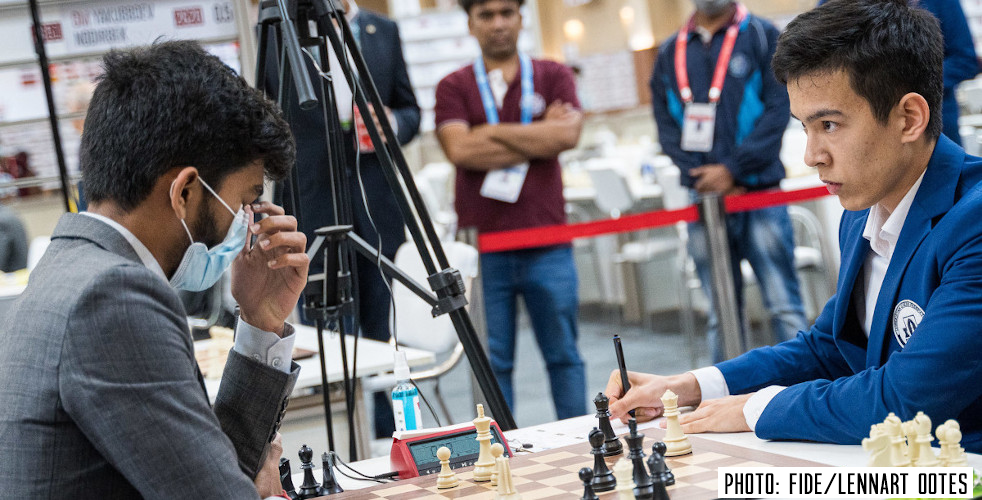
Chess Olympiad - No fun for the remembering self
A few years ago, I attended a live show in which the host, Sam Harris interviewed the famous behavioral economics expert and Nobel prize winner, Daniel Kahneman. As I had just started reading Daniel Kahneman’s famous book ‘Thinking fast and thinking slow’ I was very excited about the show. There were so many things I learned that day, but one important thing came to my mind when I was watching a couple of incidents unfold in the Chennai Olympiad that ended a couple of weeks ago.
The first heartbreaking game was to watch Grandmaster Sam Shankland make a pre-move and lose the game instantly against Armenia’s Robert Hovhannisyan. Team USA was leading the match with 2 points to 1 with one game remaining between Sam and Robert. What was interesting is that throughout the game, Sam was just worse, and most commentators did not give him any chance to survive the game. Somehow Sam managed to fight for another four hours and finally reach a drawn endgame. Just when everyone had concluded that USA will beat Armenia with a score of 2.5-1.5 with a draw on Sam’s board the unforgettable happened. Sam had calculated a main move that his opponent would play in his head and then played a response out even without letting his opponent complete his move. The result was a disaster! As any experienced chess player would know, when someone makes an illegal move, it usually leads to a touch move claim. In this case Robert did not have to claim anything, Sam realized what he had done and simply resigned in disgust. It was a sad end to a well put out defense.
The second incident was even more heartbreaking as the invincible Grandmaster Gukesh lost a chess game! Gukesh was playing for second Indian team (India fielded 3 teams) and was up against Uzbekistan’s Nodirbek Abdusattarov in game 10. Gukesh had just defeated Caruana to reach a remarkable 8/8 score on board 1! Other than Fischer’s 11/11 at the US Championship and Caruana’s 7/7 at Sinquefield cup, such a phenomenal score was unheard of. Gukesh was attaining God level in his chess play and he was earning fans all over the world. Round 10 against his equally talented opponent was underway and everything looked exactly like it was a repeat of the previous games. Gukesh was cruising through and slowly dismantling Nodirbek’s game piece by piece. At one-point Indian team was clearly the favorites as Grandmaster Praggnanandhaa was winning his game while GM Nihal Sarin and GM Abhibhan Bhaskaran had made draws on their relative boards. This would give team India a lead with 2-1 with only Gukesh’s game remaining. At this point, it looked like Gukesh would be on his way to win the game and the eventual score should be 3-1 in favor of India. However, things started to take a wrong turn slowly and somehow Gukesh lost his plot and started making some bad decisions. In his own words in an interview after the game, he called it ‘a moment of madness’. All Gukesh had to do was realize that the game was going out of his control and take a quick draw, but his brain would not allow him to settle for a draw in a game that he had dominated so much. So, he kept pushing and pushing to win the game until the inevitable happened, he blundered and lost! The implications of this loss were far more than the few rating points he lost, the team score now stood 2-2 and hence India only managed a draw against Uzbekistan. This also meant that Uzbekistan was leading the tournament and India stood second place. As the eventual results will tell you, Uzebkistan went on to clinch the gold medal while India had to settle for bronze.
I was watching the game live as Gukesh blundered and I was heartbroken like several fans around the world. As IM Sagar Shah and GM Harshit Raja put it in their Chessbase India commentary ‘Gukesh was the reason India was playing for a Gold’ and yet Gukesh might associate himself with India losing the gold! A tournament that he would remember for years to come as one of his greatest achievements might now haunt him down the memory lane for that ‘moment of madness’
Daniel Kahneman in his speech explained that we usually have two versions of memory, the experiencing self, and the remembering self. Our experiencing self is just us enjoying the current second that we live it. If we went to a music concert, it is the pleasure you get in listening to your favorite music. Your remembering self will usually remember the important parts of your experiencing self, not every second of your fun experience. Quoting Kahneman here, imagine that you went to a music concert that lasted 2 hours and you enjoyed it thoroughly. It was your favorite musician, and he did everything perfect. Let’s say for some reason the last 10 minutes of the concert became chaotic, the sound was not good or someone next to you became rude etc. etc. What tends to happen in such cases is that your memory tends to focus on the one experience that was out of sorts and forget the other 1 hour and 50 minutes of fun you had in that concert. As you retell the story to yourself and your friends, weeks, months, and years may go by, and you will realize that the only thing you remember from that concert was the bad experience and you don’t remember anything else! Mathematically it seems unfair to judge that event like that because 92% of that event was just great/fantastic/amazing and only 8% of it was bad. We should normally be very happy about such a success rate, but we will hardly remember such incidents in a positive way.
In our examples from the Olympiad, whether it was Sam Shankland’s valiant effort to fight a lost game till the end and almost make it into a draw or Gukesh’s mind boggling performance over the 11 rounds he played, both these players might have a little difficulty removing their ‘moment of madness’ from their remembering self. Most chess players can hopefully relate to this, I personally remember so many blunders in games that otherwise were reasonably well played.
We might not consciously recognize such thoughts in our day-to-day life, but always ‘remember’ that there may be a difference between what you experience and what you remember
GM Magesh Panchanathan


